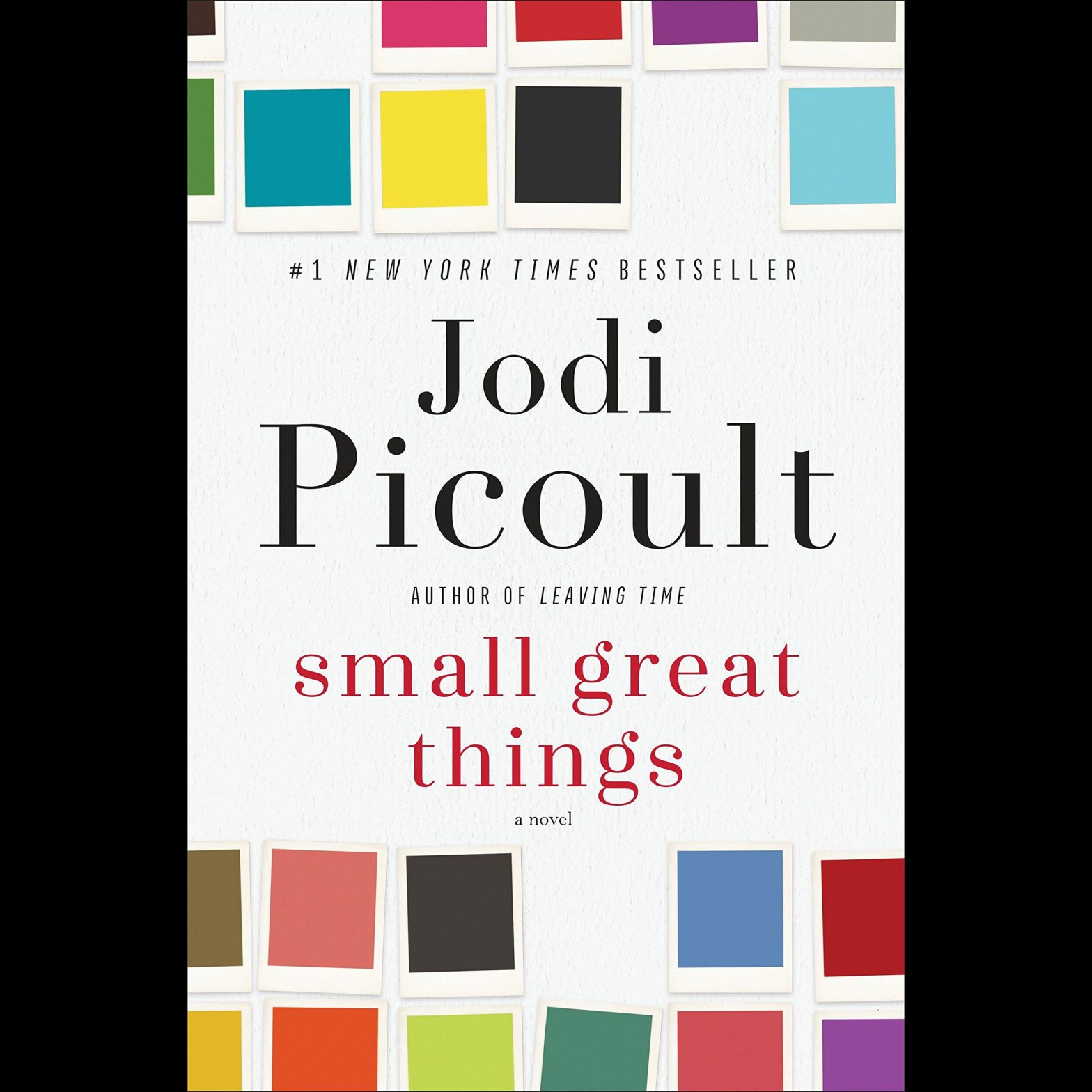Small Great Things
Review by Alison Brackett
Writer Jodi Picoult did more than a small, great thing with this novel. Known for her books about love, family, and relationships, she surprised all with this take on race in America. Small Great Things tackles profound issues such as race, prejudice, and justice. It’s the a story of Ruth Jefferson, an African American nurse at battle with a white supremacist couple after their baby dies in her care.
Picoult chose the title of the novel from the words of MLK: “If I cannot do great things, I can do small things in a great way.” This is one of many quotes that inspired the story. Picoult used quotes to form and carry her story; words from a variety of great influences, who once took a stand, lead the story chapter by chapter.
Each section of the novel is marked with a specific title alongside a quote that holds deep significance to not only the text, but our world as we know it. Picoult begins the first section with a quote by Benjamin Franklin: “Justice will not be served until those who are unaffected are as outraged as those who are.” This quote is small but mighty, and alone it can give readers a glimpse into the content that Small Great Things holds.
While this story may merely be fiction, there’s more truth to it than one may think; this story is fabricated, but within holds the stories of thousands of others without a voice. Through characters and story, Picoult uses these to portray the real injustices faced everyday by the African American community. She portrays it especially well through the main character, Ruth.
“Did you ever think our misfortune is directly related to your good fortune? Maybe the house your parents bought was on the market because the sellers didn’t want my mama in the neighborhood. Maybe the good grades that eventually led you to law school were possible because your mama didn’t have to work eighteen hours a day, and was there to read to you at night, or make sure you did your homework. . . .”
Ruth continuously educates readers throughout the novel. She continues in saying:
“How often do you remind yourself how lucky you are that you own your house, because you were able to build up equity through generations in a way families of color can’t? How often do you open your mouth at work and think how awesome it is that no one’s thinking you’re speaking for everyone with the same skin color you have? How hard is it for you to find the greeting card for your baby’s birthday with a picture of a child that has the same color skin as her? How many times have you seen a painting of Jesus that looks like you? Prejudice goes both ways, you know. There are people who suffer from it, and there are people who profit from it.”
Through Ruth, Picoult works to not only shed light onto the injustices faced throughout the country, but also to prejudice that each holds within. Ruth’s words are not only a reminder, but a lesson to those reading.
“You say you don’t see color . . . but that’s all you see. You’re so hyperaware of it, and of trying to look like you aren’t prejudiced, you can’t even understand that when you say race doesn’t matter all I hear is you dismissing what I’ve felt, what I’ve lived, what it’s like to be put down because of the color of my skin.”
Ruth hits readers with an important wake up call; Picoult, being white herself, showcases internal prejudices that one may not even notice. Her words carry reminders that some may often forget unless you’re a part of the community.
Through this work of fiction, Picoult works hard to break down barriers that our society has spent decades building up. She strives to educate, break the stigma, and raise awareness around the real life issues that continue to sweep through our country.
In the words of Ruth, Picoult leaves us with one important ending reminder: “It just goes to show you: every baby is born beautiful. It’s what we project on them that makes them ugly.”
Published by Ballantine Books on October 5th, 2016
ISBN: 9780345544971
528 pages

